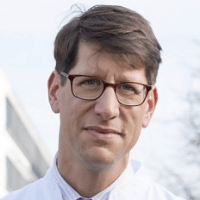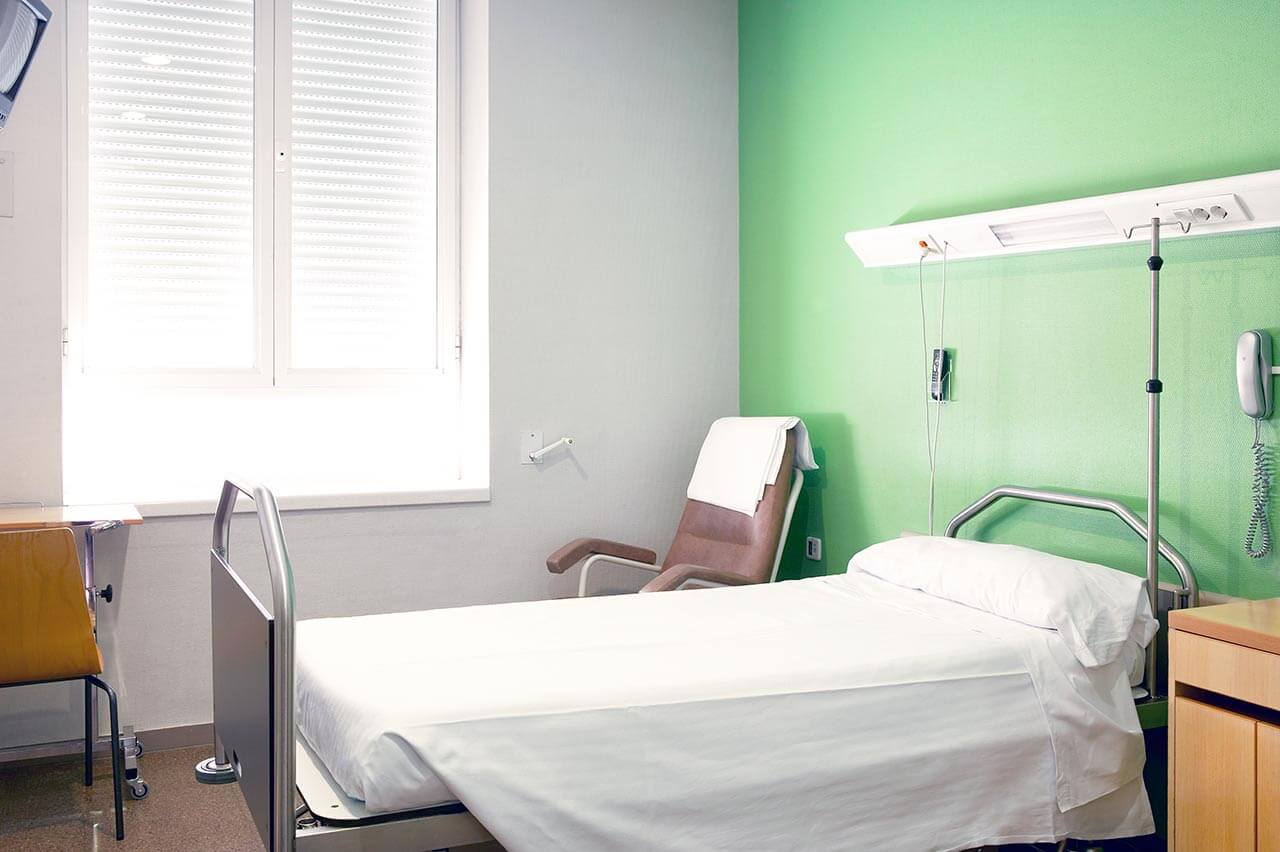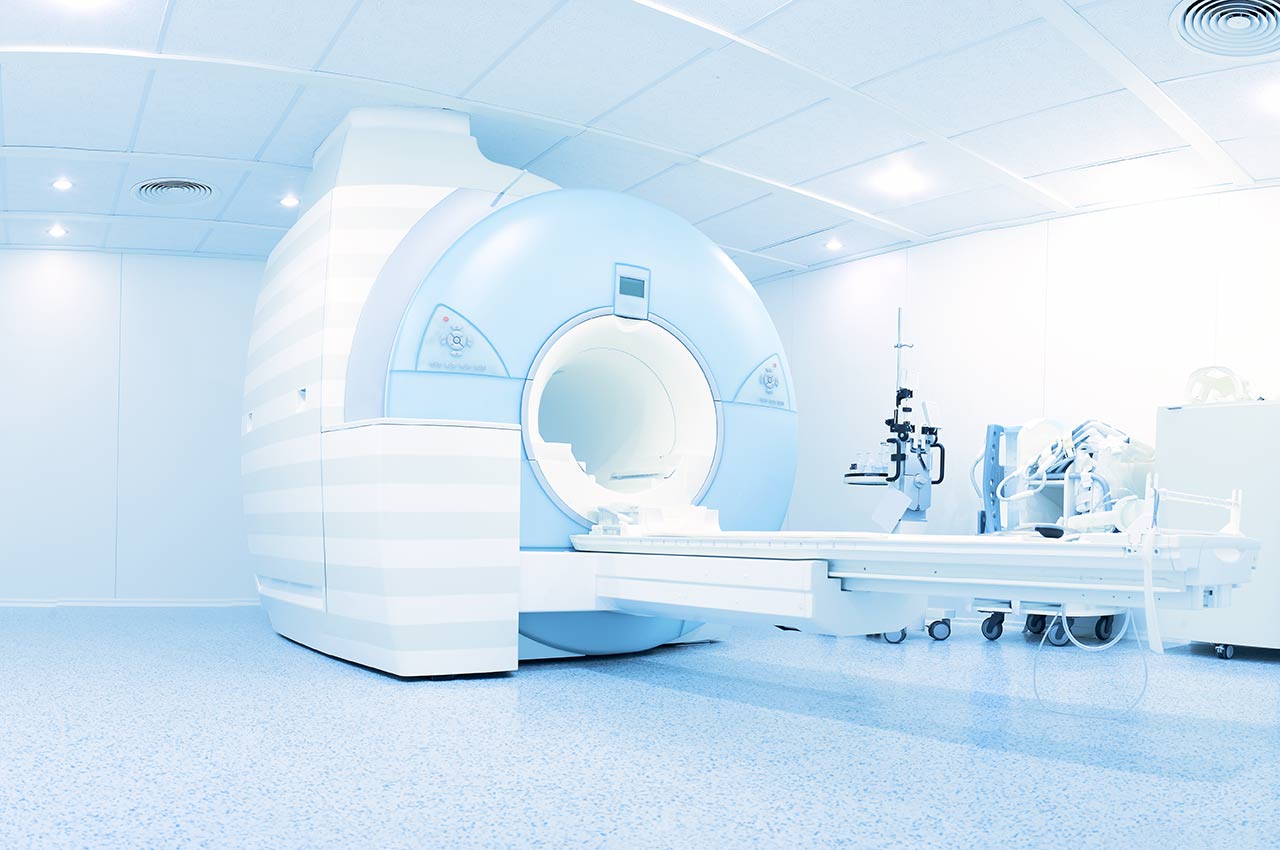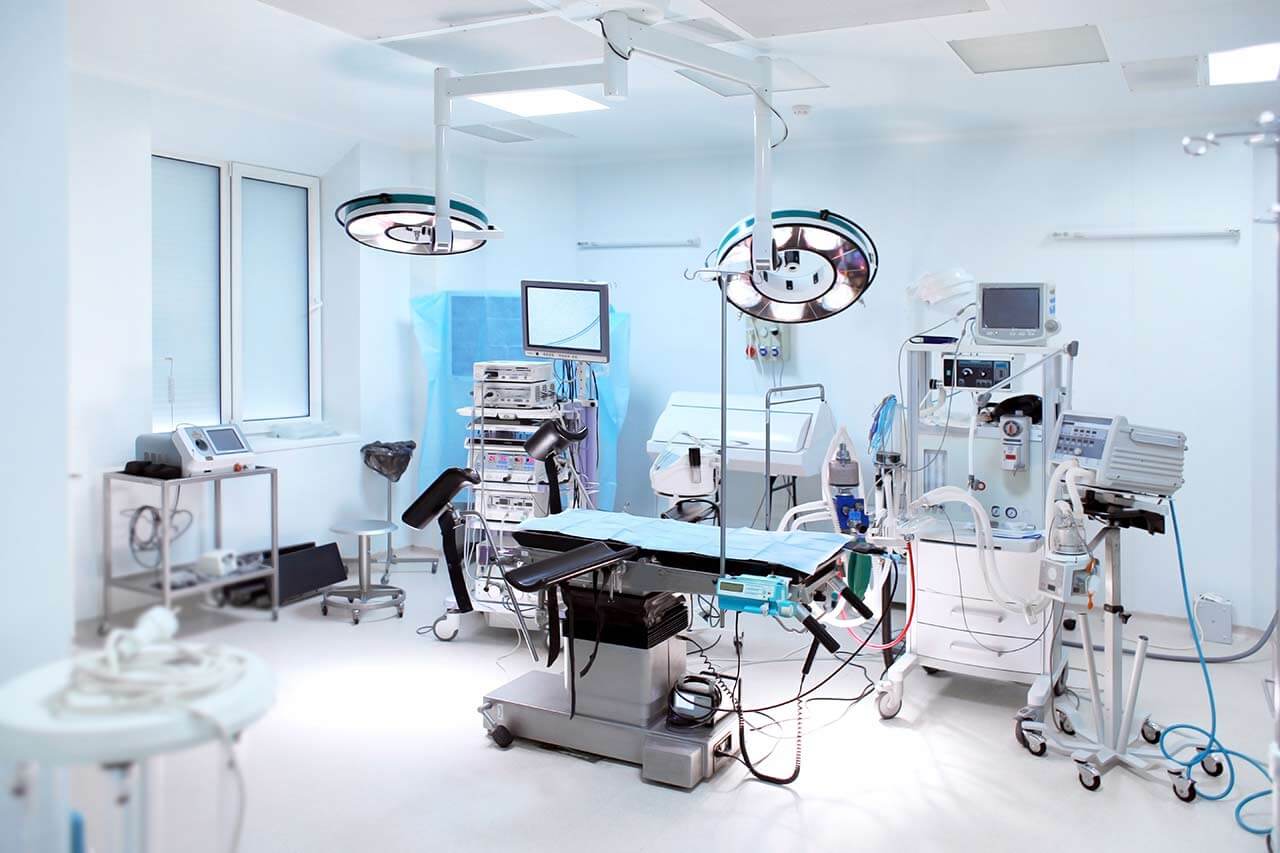
The program includes:
- Initial presentation in the clinic
- clinical history taking
- review of medical records
- physical examination
- laboratory tests:
- complete blood count
- biochemical analysis of blood
- thyroid function test (TSH-basal, fT3, fT4)
- mineral metabolism analysis (Na, K, Ca, Mg)
- lipid metabolism (HDL/LDL, cholesterol, triglycerides,
Lip(a), homocysteine) - iron content (ferritin, iron)
- blood coagulation analysis (aPTT, PT, INR)
- metabolic status (uric acid, total glucose, HbA1c)
- inflammatory parameters (CRP, ESR)
- cardiovascular disease risk markers
- vascular system assessment
- lung function test (Spirometry)
- resting and exercise ECG
- vessel elasticity measurement
- body fat and water examination
- color doppler echocardiography
- color doppler sonography of cerebral vessels
- measurement of arterial blood pressure electrocardiogram
- Holter monitoring (24h)
- preparation according to preoperative standard
- pacemaker implantation
- symptomatic treatment
- control examinations
- the cost of essential medicines and materials
- nursing services
- full hospital accommodation
- explanation of future recommendations
Required documents
- Medical records
- ECG (if available)
Service
You may also book:
 BookingHealth Price from:
BookingHealth Price from:
About the department
The Department of Cardiology, Endocrinology, Nephrology and Pulmonology at the University Hospital Würyburg offers the full range of diagnostics and treatment of all diseases of the heart and blood vessels, pathologies of the endocrine organs, including diabetes mellitus, as well as diseases of the kidneys, lungs and respiratory tract. The department has in its arsenal an advanced medical infrastructure, which allows to provide the high-precision diagnostics and the most effective treatment of even the most complex clinical cases. At the center of all efforts of the department’s medical team is the patient, his health and a positive emotional mood for a favorable therapy outcome. The Chief Physician of the department is Prof. Dr. med. Stefan Frantz.
The department is the recognized Cardiac Catheterization Center. The heart catheter diagnostics is a reliable method for the detection of coronary artery stenosis. The department regularly performs such procedures as balloon dilatation, stent implantation or rotabulation. With the help of catheter techniques, heart valve defects and structural defects of the heart wall are corrected. In particular, the department specializes in transcatheter aortic valve implantation (TAVI) and transcatheter mitral valve repair (MitraClip), catheter treatment of cardiac arrhythmias, etc. The treatment of heart failure is one of the priorities of the department. For these purposes, the department has the state-of-art technical capabilities and cooperates closely with the German Comprehensive Heart Failure Center (DZHI) and other departments. A team of doctors works in three modern catheterization laboratories 24 hours a day. It provides medical care for patients with acute heart attack and performs urgent interventions on the coronary arteries.
In the field of endocrinology, the department treats all diseases and metabolic disorders in adults caused by hormonal problems. The department specializes in the treatment of thyroid diseases, osteoporosis, diabetes mellitus, endocrine tumors, obesity, etc. In addition, the department is one of two Reference Centers for Rare Endocrine Diseases in Germany, certified by the European Union!
One of the priorities of the department is the diagnostics and treatment of endocrine tumors. The clinical manifestations of endocrine tumors are extremely diverse, and therefore the doctors of various medical specialties cooperate in providing assistance to such patients. Should the patient be diagnosed with a malignant tumor, a treatment regimen will be developed at the tumor board within the framework of the Comprehensive Cancer Center Mainfranken(CCCM). The department specializes in the treatment of adrenal and thyroid cancer, pituitary tumors, pheochromocytoma, adrenal incidentalomas, and diseases caused by hormone-active neoplasms (for example, Cushing's disease or Conn's syndrome). To continuously improve the quality of treatment and diagnostics, the department participates in the German Registry of Adrenal Tumors (NKR).
Among the department’s priorities is also nephrology. In this field, it offers the diagnostics and treatment of all acute and chronic diseases and functional disorders of the kidneys. The department specializes in supporting renal therapy, kidney transplantation, as well as in the treatment of renal arterial hypertension. The scope of tasks of the department's doctors also include the therapy of all forms of acute kidney failure, inflammation of the renal glomeruli (glomerulonephritis), cystic nephropathy. Also, the department offers the treatment of kidney failure in case of diabetes mellitus, interdisciplinary treatment of autoimmune diseases and rheumatological diseases. Fabry disease is treated within the specialized center.
The specialists of the department are also engaged in the diagnostics and treatment of all diseases of the lungs, respiratory tract and thorax. In addition to bronchial asthma (BA) and chronic obstructive pulmonary disease (COPD), the department also specializes in the modern treatment of lung cancer. In addition, the department is the recognized Center for Rare Lung Diseases.
The department enjoys an impeccable reputation in the treatment of COPD, pulmonary emphysema, and bronchiectasis. In particular, the department specializes in the treatment of severe pulmonary pathology and diseases of unclear etiology. All modern methods are available for the treatment, including, for example, endoscopic lung volume reduction and implantation of the so-called bronchial valves. In addition, the department successfully uses modern methods of drug therapy, for example, replacement therapy for alpha-1-antitrypsin deficiency.
The diagnostic and therapeutic range of the department includes:
Cardiology
- Catheter treatment options
- Diagnostics and treatment of coronary heart disease
- Treatment of acute heart attack
- Diagnostics and treatment of congenital and acquired heart defects
- Treatment of structural heart disease
- Heart rhythm disorders
- Event recorders
- Pacemakers
- Defibrillators
- Cardiac resynchronization therapy
- Catheter ablation
- Imaging-guided diagnostic techniques
- Echocardiography laboratory
- Cardiac MRI
- Cardiac CT
- Heart failure
- Drug therapy
- Pacemakers
- Restoration of coronary artery patency
- Coronary artery bypass grafting
- Heart valve interventions
- Surgical myocardial reconstruction
- Renal replacement therapy (in collaboration with the Department of Nephrology)
- Implantable mechanical heart support systems
- Heart transplantation
- Diagnostics and treatment of other cardiovascular diseases
Endocrinology
- All types of diabetes mellitus
- Lipid metabolism disorders
- Obesity
- Endocrine tumors
- Adrenal cancer
- Thyroid cancer
- Pituitary tumors
- Pheochromocytoma
- Adrenal incidentaloma
- Hormonal diseases caused by a tumor (for example, Cushing's disease or Conn's syndrome)
- Hypothalamus and pituitary gland diseases
- Thyroid and parathyroid diseases
- Adrenal gland diseases
- Secondary arterial hypertension due to hormonal disorders
- Impaired levels of the female and male sex hormones
- Gender dysphoria (gender identity disorder)
- Disorders of calcium and phosphate metabolism
- Decreased bone mineral density, osteoporosis
- And other endocrine diseases
Nephrology
- Nephrological diagnostics
- Blood count (creatinine, cystatin C, electrolytes, blood gas test, glomerular filtration rate (GFR), parathyroid hormone (PTH), etc.)
- Urinalysis (protein, white blood cells and red blood cells, bacteria, crystals)
- Imaging diagnostics using ultrasound, CT, or MRI
- Kidney biopsy and other special examinations
- Diseases and functional disorders of the kidneys
- Acute kidney failure
- Glomerulonephritis
- Autoimmune diseases
- Polycystic kidney disease
- Heart and kidney failure
- Fabry disease
- Renal replacement therapy
- Hemodialysis
- Peritoneal dialysis
- Kidney transplantation
- Diagnostics and treatment of resistant arterial hypertension
- Diagnostics and treatment of other kidney and kidney-related diseases
Pulmonology
- All benign and malignant lung diseases
- Infectious diseases
- Bronchial asthma (BA)
- Interstitial lung diseases
- Pulmonary fibrosis
- Pulmonary hypertension (PH)
- Rare lung diseases and sarcoidosis
- Other diseases of the lungs, respiratory tract and thorax
Curriculum vitae
Education
- 1989 - 1991 Study of Medicine, University of Regensburg.
- 1991 - 1994 University of Würzburg.
- 1994 University of Western Ontario, London, Canada.
- 1994-1996 University of Würzburg, 3rd State Examination.
- One-year practice in Neurology and Cardiology at the University of Southern California, Los Angeles, USA.
- 1996 Title of the Candidate of Medical Sciences.
Professional Experience
- 1996 - 1997 Intern, University Hospital Würzburg.
- 1998 - 2000 Department of Cardiac Surgery, Brigham and Women's Hospital / Boston University School of Medicine, USA. Molecular Biology in the laboratory of Prof. Ralph Kelly with the support of a Research Grant of the German Research Foundation.
- 2000 - 2007 Assistant Physician at the University Hospital Würzburg.
- 2005 Therapist.
- 2006 Specialization in Cardiology.
- 2006 Doctoral thesis defense in Therapy, Venia Legendi and appointment to the position of PD.
- 2006 Certified Specialist in Health Economics.
- 2007 Senior Physician of the Intensive Care Unit.
- 2007 Additional qualification in Intensive Care.
- 2008 Secretary of the Cardiovascular Center.
- 2009 Diabetology (DDG).
- 2009 Head of the Department of Emergency Medical Care and Admission Unit.
- 2009 Management of Chest Pain Unit.
- 2010 Board Member and Scientific Director of the Comprehensive Heart Failure Center (DZHI) Würzburg.
- 2010 Deputy Director of the Department of Internal Medicine I, University Hospital Würzburg.
- 2011 (W2) Profess in Translational Researchers.
- 2012 Board Member of the Interdisciplinary Center for Clinical Research (IZKF) of Würzburg.
- 2012 Permission to provide advanced training courses in Intensive Care for doctors.
- 2014 Director of the Department of Internal Medicine, Martin Luther University Halle-Wittenberg.
- Permission to provide advanced training courses in Cardiology / Internal Medicine.
- 2014 Chairman of the Professional and Examination Board for Cardiology, Federal State Association Saxony-Anhalt.
- 2017 Director of the Department of Cardiology, Endocrinology, Nephrology and Pulmonology at the University Hospital Würzburg.
Additional Qualifications
- 2001 Qualification "Pacemakers".
- 2002 Qualification "Genetic Engineering".
- 2003 Qualification "Radiation protection" (accidents, examinations of the thoracic organs, cardiac catheterization).
Awards
- 2004 New Investigator Award at the American Heart Association, Council on Basic Cardiovascular Science.
- 2005 Prize of the Network of Competent Medical Centers for Heart Failure.
- 2013 Arthur Weber Prize (prestigious honorary award of the German Cardiac Society).
Membership in Professional Societies
- Member of the European Academy of Sciences (EUAS).
- German Society of Internal Medicine.
- German Society of Cardiology.
- German Diabetes Association.
- American Heart Association, Council on Basic Cardiovascular Science.
- European Society of Cardiology, Working Group on Myocardial Function.
Photo of the doctor: (c) Universitätsklinikum Würzburg
About hospital
According to the FOCUS magazine in 2019, the University Hospital Würzburg ranks among the top national German hospitals!
The hospital is one of the oldest medical facilities in Germany. The centuries-old traditions of first-class treatment are combined with the very latest achievements of modern evidence-based medicine and advanced expert experience. The hospital is the maximum care medical center and covers all fields of modern medicine. The hospital has an impeccable international reputation and treats a large number of patients from other countries every year.
A distinctive peculiarity of the hospital is active interdisciplinary cooperation. A large number of diseases are diagnosed and treated within the specialized centers, which medical teams rely on the unique experience of treatment of a wide variety of clinical cases. For example, such centers include the General Cancer Center, the Stem Cell Therapy Center, the Breast Health Center, the Gastrointestinal Center, the Thoracic Surgery Center, etc. In total, the hospital has more than 40 centers of this kind. Therefore, the patients of the hospital are confident that they will be offered the most relevant treatment in accordance with the very latest medical recommendations.
In addition to the most advanced achievements and methods of modern medicine, the medical team of the hospital makes every effort to create a comfortable, friendly atmosphere, which promotes patient well-being and recovery.
Photo: (с) depositphotos
Accommodation in hospital
Patients rooms
The patients of the University Hospital Würzburg live in comfortable rooms made in a modern design and bright colors. The patient room includes a bed with a remote control, a bedside table with a sliding table, a wardrobe, a TV. The patient rooms have the possibility of Internet connection. The enhanced-comfort rooms are equipped with a safe, a fridge and upholstered furniture.
Meals and Menus
The patients of the hospital are offered a varied and tasty three meals a day. There is a daily choice of several menus, including a dietary one. In case of intolerance to any food, please inform the medical staff about your food preferences in advance. After that, you will be offered an individual menu. Also, the hospital houses the cafes and cafeterias with a wide assortment of drinks, fresh pastries, fresh salads, sweets and other dishes.
Further details
Standard rooms include:
Religion
Christian priests are available for the patients at any time. Representatives of other religions may be requested at any time.
Accompanying person
Your companion may stay with you in your room or at a hotel of your choice during the fixed program.
Hotel
You may stay at the clinic hotel or a hotel of your choice during the outpatient program. Our manager will help you choose the best option.





